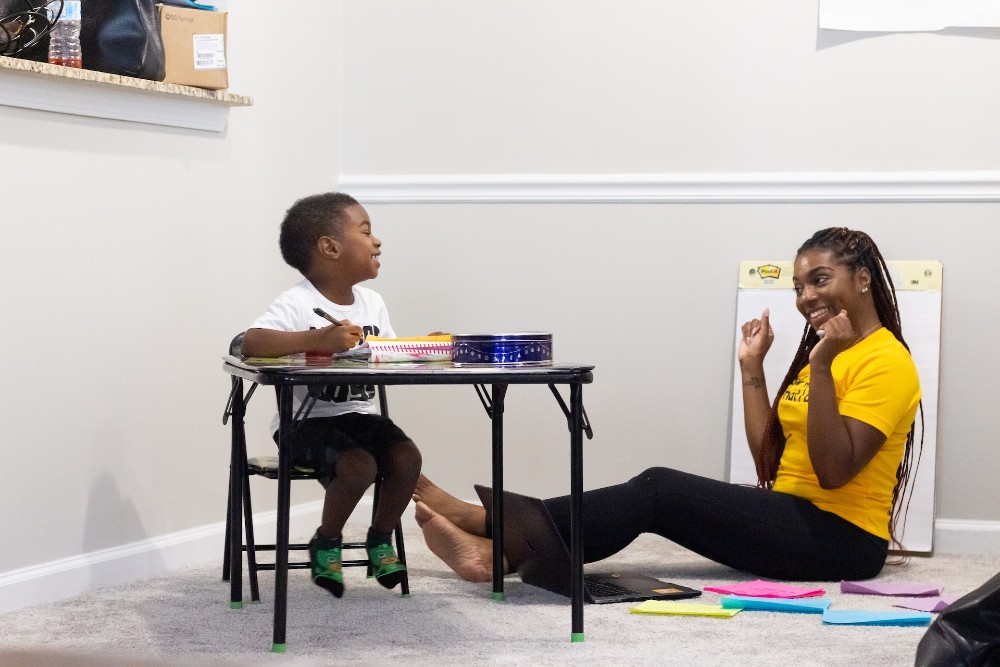
We are a reader-supported education publication. When you buy through links on our site, we may earn an affiliate commission to help us keep providing content.
Creating parent engagement strategies in K-12 classrooms is essential to student success. According to Youth.gov, parental involvement in a child’s learning experiences results in fewer high school dropouts and higher grades.
Administrators and teachers must develop activities for parents to participate in their child’s education to help them reach their full potential. However, many parents have busy schedules with limited hours, requiring more accessible opportunities.
Here are six parent engagement strategies teachers can use to bring students and parents together in the classroom.
1. Parent-Teacher Conferences
According to the National Center for Education Statistics (NCES), attendance for parent-teacher conferences drops significantly between elementary and high school grade levels. Data from the 2017–2018 academic year showed that 62% of parents attended parent-teacher conferences for elementary school students, while only 14% regularly attended for high schoolers.
Parent-teacher conferences are excellent for informing parents about their child’s educational progress. It’s a meeting where teachers can highlight ways the student is thriving and areas they may need improvement.
Simultaneously, parents can develop a closer relationship with their child’s teachers and enhance communication.

2. Classroom Website
Educational technology has taken academia by storm in recent years. Some argue that technology hinders learning, while others embrace it. Regardless, setting up a classroom website is an excellent way to improve parent engagement.
Teachers can disseminate information to parents regarding upcoming homework or projects, current lessons, announcements, school events, and field trips. It’s also a great way to highlight student achievements and provide more regular communication.
3. In-Class Volunteering
Parent engagement strategies can be as straightforward as in-class volunteering. Encouraging parents to help during daytime lessons gets them in the classroom and directly involved in student learning.
Parents who volunteer in class are also a great help to teachers. With extra hands, teachers can conduct learning stations that cater to students’ diverse learning styles and needs.
For instance, teachers may work with students struggling with equations at one station, while a parent may use fake money to teach students counting at another station.
4. Events and Assemblies
There are plenty of ways to engage parents at school, from field trips to school-wide assemblies on bullying to the science or art fair.
Field trips are great for hands-on learning experiences — but ensuring the safety of an entire classroom requires more than just one teacher. For example, students can learn more about recyclable items by touring a recycling center, enhancing their understanding of plastic pollution. However, recycling facilities can be dangerous if students get lost. Parent volunteers deliver extra sets of eyes to ensure that everyone sticks together.
Parent engagement is also critical for forming anti-bullying initiatives in schools. Studies have shown a 35% prevalence of traditional bullying at school, while the rise of digital platforms has led to a 15% increase in cyberbullying. When parents are involved in their child’s well-being and peer-to-peer relationships, bullying gets addressed more often.

5. Parental Feedback and Idea Sharing
Teachers can increase parent engagement by asking parents to provide feedback and brainstorm ideas to enhance academic progress.
While requesting suggestions and feedback has several advantages for improving the learning environment, teachers must develop a sound implementation plan for the best ideas — and at least attempt to explain why they chose not to go with less conducive contributions.
6. Helpful Guidance for Student Success
Teachers have years of experience teaching students at different grade levels. Conversely, parents might struggle with developing academic skills at home.
To improve parent engagement strategies outside the classroom, teachers should offer guidance on reinforcing complex concepts and behaviors — this is especially important for getting failing students back on track.
Improve Parent Engagement Strategies for Student Success
Some parent engagement strategies may be more effective than others, which is why teachers and administrators must continuously improve how they involve parents. With the best approach to active parent participation in place, students will be far more academically successful.
latest in learning!
Get the latest updates in learning, teaching and everything in between! Whether you're a student or an educator, we offer the inspiration you need to fuel your classroom experience.








